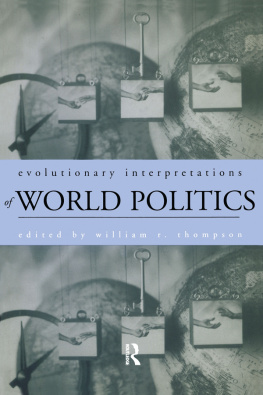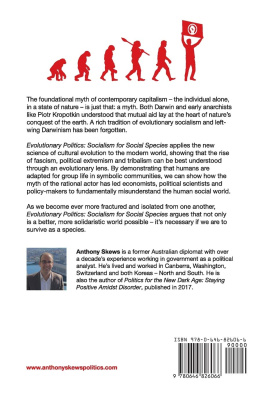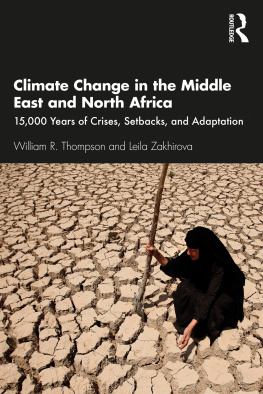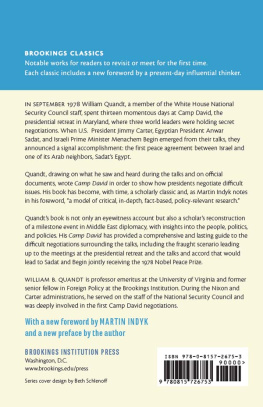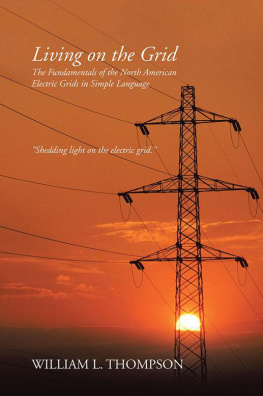evolutionary interpretations
of WORLD POLITICS
Evolutionary Interpretations
of WORLD POLITICS
Edited by William R. Thompson
First published 2001 by Routledge
Published 2016 by Routledge
2 Park Square, Milton Park, Abingdon, Oxon 0X14 4RN
711 Third Avenue, New York, NY 10017, USA
Routledge is an imprint of the Taylor & Francis Group, an informa business
Copyright 2001 Taylor & Francis.
All rights reserved. No part of this book may be reprinted or reproduced or utilised in any form or by any electronic, mechanical, or other means, now known or hereafter invented, including photocopying and recording, or in any information storage or retrieval system, without permission in writing from the publishers.
Notice:
Product or corporate names may be trademarks or registered trademarks, and are used only for identification and explanation without intent to infringe.
Credits and acknowledgments borrowed from other sources and reproduced, with permission, in this textbook appear on appropriate page within text.
ISBN: 9780415930581 (hbk)
Library of Congress Cataloging-in-Publication Data
Evolutionary interpretations of world politics / William R. Thompson, editor.
p. cm.
Rev. versions of papers originally presented at conference held Dec. 1998, Indiana University, Bloomington, Ind.
Includes bibliographical references and index.
ISBN 978-0-415-93058-1 (hbk)ISBN 978-0-415-93059-8 (pbk)
1. World politicsCongresses. 2. International relationsPhilosophyCongresses. 3. International cooperationCongresses. 4. Power (Social sciences)Congresses. 5. Political psychologyCongresses. I. Thompson, William R.
D32 .E98 2001
327.1dc21 00066485
Contents
William R. Thompson
George Modelski
Vincent S. E. Falger
David P. Rapkin
Jennifer Sterling-Folker
Hendrik Spruyt
Stewart Patrick
Paul R. Hensel
William R. Thompson
Karen A. Rasler
Craig N. Murphy
Sangbae Kim and Jeffrey A. Hart
Brian M. Pollins
Earlier versions of the papers presented in this volume were first presented at a December 1998 conference on evolutionary approaches to international relations theory held at Indiana University in Bloomington under the auspices of the IU Center for the Study of International Relations. We are grateful to the Center for its 1998 support. But it should also be noted that this conference followed two earlier ones held in Seattle in the mid-1990s under the leadership of George Modelski. The attempt to construct evolutionary IR paradigms thus has a lineage within which this volume is only the most recent manifestation. The lineage should also underscore the work-in-progress nature of this undertaking. As in other evolutionary processes, there is a great deal of experimental trial and error in constructing new IR frameworks and theories. Hopefully, we will get it right some day and when we do, that product, too, will also need to continue to evolve. Along the way, it should be recognized that a number of other people participated in the 1998 conference but for various reasons were unable to participate in this volume: Emmanuel Adler, Fulvio Attina, Lars-Erik Cederman, Tanisha Fazal, Robert Jervis, Miles Kahler, Scott Sagan, and John Vasquez. We have all benefited from their contributions to the 1998 conference. We are equally grateful to Eric Nelson and Routledge for making possible the wider circulation of our arguments, for it will not be possible to judge whether this particular effort is successful until or unless other IR scholars choose to join our search for evolutionary interpretations of world politics. Hopefully, the publication of this edited volume will encourage precisely that outcome.
William R. Thompson
Students of international relations (IR) are familiar with realist, liberal, marxist, and, more recently, constructivist paradigms. Each has a set of assumptions that reflects a singular perspective on how international relations work. A perspective that is less familiarin large part, because it is only now emergingis the evolutionary paradigm. There is no one evolutionary paradigm, just as other IR paradigms also possess multiple variations. But the core assumptions go well beyond the most minimal meaning, and perhaps most common employment, of evolution, that is an emphasis on change. The most critical assumptions involve variation and selection. The principal unit of analysis, whether it be states, regime types, economic innovations, ideologies, strategies, or policies, exists in different formats. For instance, at a given point in time, there may be variation in the types of states (city-states, empires, nation-states) or the types of ideologies (fascism, communism, liberal democracy, socialism) that exist. At a subsequent point in time, some of the state types and ideologies will have disappeared. Nation-states, by and large, have been selected over city-states. Liberal democracy has been selected over fascism and communism. The question is then why one approach is selected and others abandoned or ignored. The general answer is found in the interaction between changing environments and actors. As environments and actors change, so too do the probabilities that some approaches will survive and flourish while others wither and may even disappear.
An emphasis on variation and selection goes beyond the minimalist emphasis on mere change. Most evolutionary paradigms in IR, however, stop short of emulating a maximal approach, which could be described as emulating biologys emphasis on genetic combinations, success in sexual reproduction, and blind and slow reactions to external change. Ironically, evolutionary biology initially borrowed some of its conceptualization from the social sciences. But it is not necessary to treat human actors as if they were plants or simple organisms incapable of modifying their environments. Human actors do react to external and internal changes in their environments. They are also capable of anticipating and bringing about environmental change. While there is no need to exalt humans above other species, their behavior can certainly be more complex. Paradigmatic treatments need to reflect this additional degree of complexity.
But is there a need for still another set of paradigms in the study of international relations? Different people will respond differently to this question. Evolutionary interpretations offer a number of advantages over alternative frameworks. Most obviously, evolutionary arguments cannot evade the need to examine historical change. It may well be that analysts drawn to questions involving long-term, historical change are most likely to be drawn to this type of analysis. But, evolutionary analyses offer considerable flexibility in foci on units of analysis and problematiques. One can focus on states, groups, firms, ideas, or individuals, or all of the aboveas long as one anticipates evolutionary processes at multiple levels. One can study processes related to war, inequality, technological change, and identity formation and, conceivably, all at the same time. The point is that the evolutionary paradigm does not privilege a type of actor or a type of problem as the core foci. The other IR paradigms do. Moreover, evolutionary approaches allow the analyst to mix attractive elements from various paradigmatic approaches without betraying the coherence of the analysis. Thus, an evolutionary approach to world politics and political economy is highly flexible.


